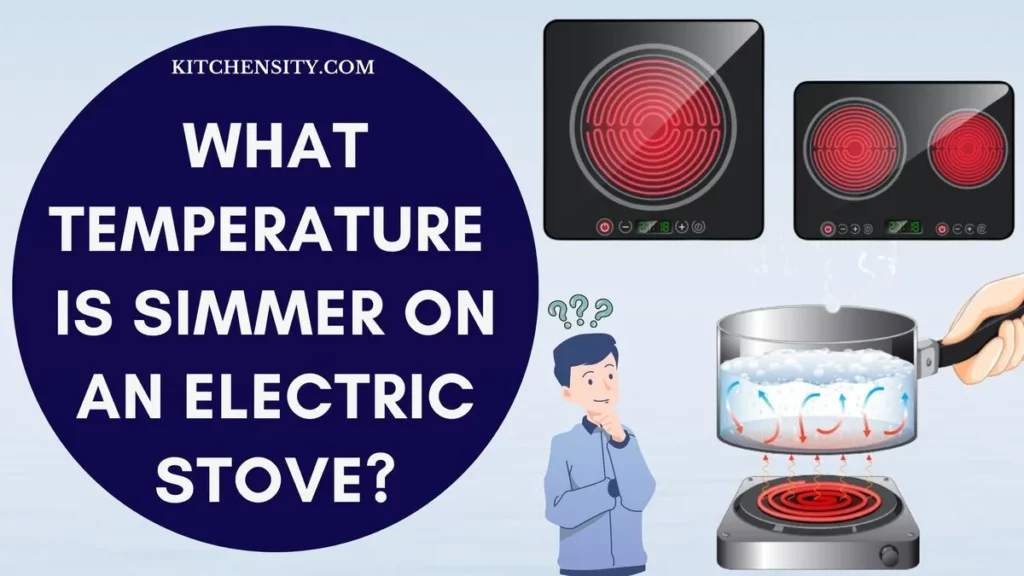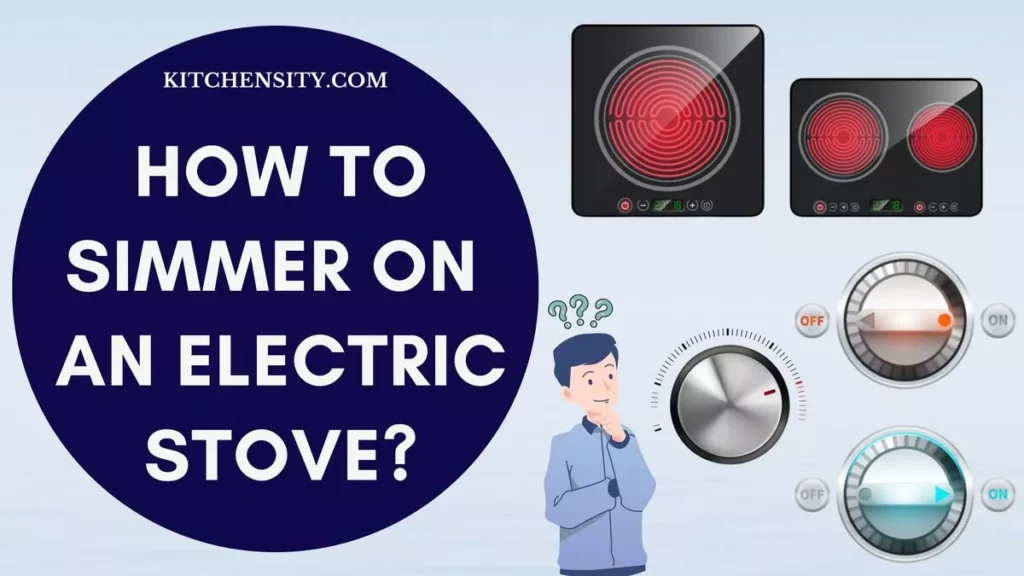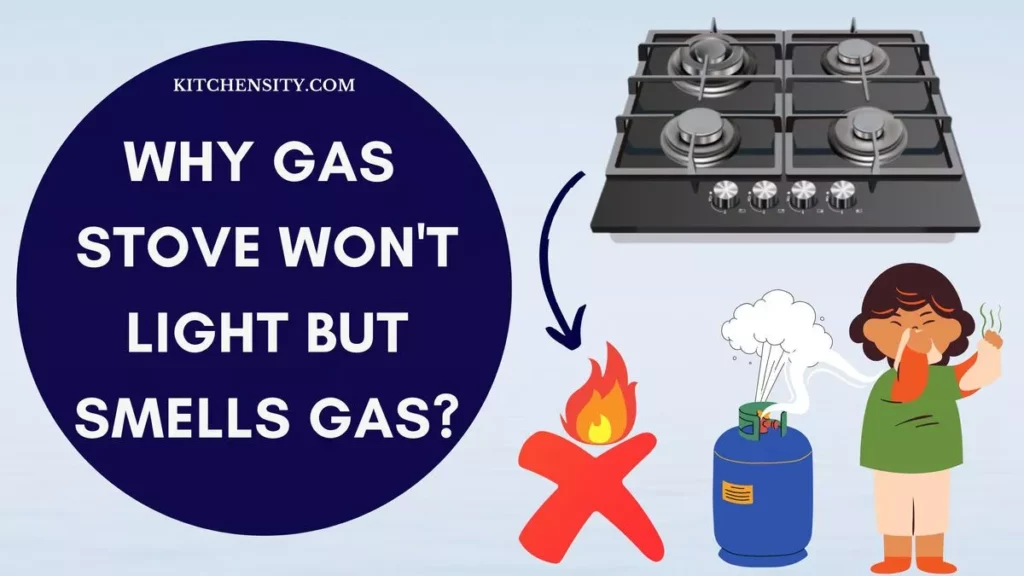In today’s modern kitchens, the debate between gas and electric stoves continues to spark interest. Homeowners often grapple with decisions concerning safety, efficiency, and energy consumption. One prevalent question that arises in this context is whether a gas stove needs a dedicated circuit.
In this article, we will delve into the intricacies of gas stove installation, addressing concerns about circuits, safety measures, and practical tips for an optimal kitchen setup.
![Does A Gas Stove Need A Dedicated Circuit? [Know The Truth] 1 Does A Gas Stove Need A Dedicated Circuit?](https://www.kitchensity.com/wp-content/uploads/2023/10/Does-A-Gas-Stove-Need-A-Dedicated-Circuit-1024x576.webp)
Table of Contents
- 1 Understanding Gas Stoves And Dedicated Circuits
- 2 Does A Gas Stove Need A Dedicated Circuit?
- 3 The Significance Of A Dedicated Circuit For Your Gas Range
- 4 Determining The Amperage Requirement For A Gas Stove
- 5 Consequences Of Operating Your Gas Range Without A Dedicated Circuit
- 6 Necessity Of A Dedicated Circuit For Electric Ranges
- 7 Types Of Appliances That Need A Dedicated Circuit?
- 8 Sharing A Circuit: Feasibility For Gas Stoves
- 9 Final Thoughts: Does A Gas Stove Need A Dedicated Circuit?
- 10 Frequently Asked Questions (FAQs)
- 10.1 Should Gas Stoves Be On A Dedicated Circuit?
- 10.2 Can I Share A Circuit Between A Gas Stove And An Electric Oven?
- 10.3 Does A Gas Stove Need A Dedicated Circuit For Its Oven Light?
- 10.4 Is It Safe To Connect A Gas Stove And A Refrigerator To The Same Circuit?
- 10.5 Can I Install A Gas Stove On The Same Circuit As My Microwave Oven?
- 10.6 Do All Gas Stoves Have Similar Electrical Requirements?
Understanding Gas Stoves And Dedicated Circuits
Understanding the basics of gas stoves is crucial for safe and efficient cooking. Gas stoves operate by using natural gas or propane to create flames for cooking. Unlike electric stoves, they offer quick heat-up times and precise temperature control, making them a popular choice among cooks.
However, it’s important to note that gas stoves require proper ventilation to remove combustion byproducts and ensure a safe environment. Regular maintenance and professional installation are recommended to enjoy the benefits of a gas stove while prioritizing safety.
Also Read – Why Is My Gas Stove Not Clicking?
What Is A Dedicated Circuit?
A dedicated circuit is an electrical circuit reserved exclusively for a specific appliance or purpose. It ensures a stable power supply to the appliance, preventing overloading and reducing the risk of electrical hazards like fires. Dedicated circuits are designed to handle the electrical demands of a single device, enhancing safety and performance.
Does A Gas Stove Need A Dedicated Circuit?
No, a gas stove does not typically need a dedicated circuit for its burners. Gas stoves operate primarily on natural gas or propane and have minimal electrical components, such as igniters and lights, which draw low power. They can usually share a circuit with other low-power kitchen devices without issues, making a dedicated circuit unnecessary for most gas stoves.
Unlike electric stoves, gas stoves have minimal electrical components. Typically, these components include ignition systems for burners and, in some cases, electronic features such as timers or lights.
The need for a dedicated circuit arises when an appliance requires a stable and separate electrical supply to function efficiently and safely. In the case of gas stoves, the electrical components are generally low-powered and do not draw significant electricity. Therefore, most gas stoves do not require a dedicated circuit solely for the burners.
However, there are exceptions. Some high-end gas stoves come with additional features like electronic displays, convection fans, or advanced ignition systems that might require more power. In these instances, consulting the stove’s manual or contacting the manufacturer is essential to determine specific electrical requirements.
Furthermore, while the burners themselves may not require a dedicated circuit, other kitchen appliances, such as electric ovens or microwaves, might. It’s crucial to consider the overall electrical load in your kitchen when planning the circuitry. Overloading a circuit can lead to tripped breakers, potential damage to appliances, and, in extreme cases, fire hazards.
Also Read – How To Fix A Pilot Light On A Gas Stove?
The Significance Of A Dedicated Circuit For Your Gas Range
![Does A Gas Stove Need A Dedicated Circuit? [Know The Truth] 2 The Significance Of A Dedicated Circuit For Your Gas Range](https://www.kitchensity.com/wp-content/uploads/2023/10/The-Significance-Of-A-Dedicated-Circuit-For-Your-Gas-Range.webp)
The significance of a dedicated circuit for your gas range lies in ensuring safety, efficiency, and optimal performance. While gas ranges primarily operate using natural gas or propane for cooking, they often have electrical components such as igniters, lights, or electronic features. These components require a stable and separate electrical supply.
By having a dedicated circuit for your gas range, you prevent overloading of the electrical system in your home. Overloaded circuits can lead to tripped breakers, potential damage to appliances, and fire hazards. A dedicated circuit provides a consistent power source, allowing the gas range’s electrical components to function effectively without drawing power from other devices in your kitchen.
So, a dedicated circuit for your gas range is essential to ensure the safe and efficient operation of its electrical components, promoting both convenience and safety in your kitchen.
Also Read – Why Gas Stove Won’t Light But Smells Gas?
Determining The Amperage Requirement For A Gas Stove
Determining the amperage requirement for a gas stove involves understanding the electrical needs of the stove’s components. While gas stoves primarily operate using natural gas or propane for cooking, they often contain electrical elements such as igniters, lights, or electronic controls. To determine the amperage requirement:
- Check The Stove’s Manual: The manufacturer’s manual provides detailed information about the electrical specifications of the gas stove. It typically includes the amperage (expressed in amps) needed for the stove’s electrical components.
- Inspect The Electrical Components: Identify the electrical features in the gas stove. These could include ignition systems, oven lights, clocks, or electronic displays. Each component may have a specific amperage requirement.
- Calculate Total Amperage: Add up the individual amperage requirements of all the electrical components. This total gives you the overall amperage needed for the gas stove.
- Consult An Electrician: If you are uncertain about how to calculate the amperage or if your gas stove requires a dedicated circuit, consult an electrician. They can assess your kitchen’s electrical capacity, ensuring it can accommodate the gas stove’s electrical needs.
- Consider Other Appliances: If the gas stove shares a circuit with other kitchen appliances, consider their amperage requirements as well. Avoid overloading the circuit by ensuring the total amperage of all appliances on the circuit does not exceed the circuit’s capacity. If necessary, install a dedicated circuit for the gas stove to prevent overloading.
- Follow Local Codes: Adhere to local electrical codes and regulations when determining the amperage requirement and installing the gas stove. Compliance with these codes is essential for safety and legal reasons.
Also Read – How To Fix The Gas Stove Igniter Not Sparking After Cleaning?
Consequences Of Operating Your Gas Range Without A Dedicated Circuit
Operating your gas range without a dedicated circuit can have several consequences, posing risks to both your appliances and your home’s safety:
- Tripped Breakers: Sharing a circuit with other appliances can lead to overloading. If the electrical demand surpasses the circuit’s capacity, it will trip the breaker, causing frequent power interruptions and inconvenience in your kitchen.
- Inefficient Operation: When a gas range competes for power with other devices on the same circuit, it might not function at its optimal capacity. Igniters might not spark with sufficient power, leading to delayed ignition and inefficient cooking.
- Appliance Damage: Fluctuating power levels due to a shared circuit can damage the electronic components of your gas range. Over time, this can lead to malfunctions, requiring costly repairs or premature replacement of parts.
- Increased Fire Hazard: Overloaded circuits generate heat, increasing the risk of electrical fires. The wires and outlets on the shared circuit could overheat, posing a significant danger to your home and its occupants.
- Voided Warranty: Operating appliances outside the manufacturer’s specifications, including electrical requirements, can void the warranty. In case of damage, you might not be eligible for repairs or replacements if the appliance was not used as directed.
- Safety Concerns: Inadequate power supply might compromise safety features like automatic shut-offs and timers. These features are designed to enhance safety but rely on a stable power source to function effectively.
- Legal And Insurance Issues: Non-compliance with local electrical codes and regulations could lead to legal consequences. Moreover, in the event of a fire caused by electrical issues, insurance claims might be denied if it is discovered that appliances were operating on an overloaded circuit.
To ensure the safe and efficient operation of your gas range, it is essential to have a dedicated circuit installed. This dedicated circuit provides a stable power supply, preventing these consequences and ensuring your appliance operates as intended, free from the risks associated with electrical overloads.
Also Read – Do Gas Stoves Have Pilot Lights?
Necessity Of A Dedicated Circuit For Electric Ranges
Having a dedicated circuit for electric ranges is essential for several reasons, ensuring both safety and optimal performance in your kitchen:
- Stable Power Supply: Electric ranges require a significant amount of power to operate efficiently. A dedicated circuit provides a stable and consistent power supply to the range, preventing voltage fluctuations and ensuring reliable performance.
- Prevention Of Overloading: Electric ranges draw a considerable amount of electricity, especially when multiple burners and the oven are in use simultaneously. Sharing the circuit with other appliances can lead to overloading, causing tripped breakers and potential fire hazards. A dedicated circuit prevents this issue.
- Safety: Overloaded circuits can overheat, posing a significant risk of electrical fires. Having a dedicated circuit reduces the risk of overheating, enhancing overall kitchen safety.
- Compliance With Electrical Codes: Many local electrical codes and regulations require dedicated circuits for high-power appliances like electric ranges. Compliance with these codes is necessary to ensure the safety of your home and its occupants. Failure to comply could result in legal issues and insurance complications.
- Appliance Longevity: Providing a dedicated circuit for your electric range ensures that it receives the necessary power without strain. This consistent power supply can prolong the lifespan of the appliance, preventing wear and tear caused by insufficient or fluctuating electricity.
- Warranty Coverage: Using your electric range on a dedicated circuit often aligns with the manufacturer’s specifications. In case of malfunction or repairs, adhering to these specifications ensures that your warranty coverage remains valid, potentially saving you repair costs.
- Convenience: With a dedicated circuit, you can use your electric range and other kitchen appliances simultaneously without worrying about tripped breakers. This convenience is especially crucial during meal preparation times.
So, a dedicated circuit for electric ranges is not just a recommendation but a necessity. It ensures safety, prevents electrical hazards, complies with regulations, promotes appliance longevity, and provides the convenience of using your kitchen appliances without disruptions.
If your kitchen does not already have a dedicated circuit for your electric range, it’s advisable to consult an electrician to have one installed promptly.
Also Read – Why Did My Glass Stove Top Crack?
Types Of Appliances That Need A Dedicated Circuit?
Several types of appliances require a dedicated circuit to operate safely and efficiently. These appliances have high power demands and can overload a shared circuit if not connected to a dedicated electrical line. Here are common examples:
- Electric Ranges And Ovens: Electric ranges and ovens draw significant power, especially when all burners and the oven are in use simultaneously. A dedicated circuit is essential to prevent overloading and ensure safe operation.
- Electric Clothes Dryers: Electric dryers use heating elements to dry clothes, requiring a dedicated circuit to handle the high power demands during operation.
- Central Air Conditioning Units: Central air conditioning systems require dedicated circuits to handle the substantial electrical load during both cooling and heating seasons.
- Space Heaters: Space heaters, particularly high-wattage ones, need their dedicated circuits to prevent overloading and reduce the risk of electrical fires.
- Electric Water Heaters: Electric water heaters, especially those with high capacities, require dedicated circuits to provide consistent power for heating water.
- Refrigerators And Freezers: Although most refrigerators and freezers can operate on shared circuits, having a dedicated circuit can enhance their efficiency and prevent fluctuations in power supply.
- Dishwashers: Dishwashers often have high-power heating elements for drying dishes. A dedicated circuit ensures they receive sufficient power without overloading the kitchen circuit.
- Microwave Ovens: Microwaves with high wattage may require dedicated circuits to operate safely, especially in commercial or heavy-use settings.
- Garbage Disposals: Garbage disposals with powerful motors often have dedicated circuits to handle their electrical needs effectively.
- Hot Tubs And Spa Equipment: Hot tubs and spa equipment require dedicated circuits due to their high-power heaters, pumps, and control systems.
- Home Workshops: Workshops with power tools, welding machines, or other heavy-duty equipment should have dedicated circuits to accommodate various high-power devices.
- Home Theater Systems: Complex home theater setups with high-end audio amplifiers and large displays may require dedicated circuits to prevent audio/video distortion and ensure optimal performance.
Any appliance with a high power demand, heating elements, or motors that start under heavy load typically needs a dedicated circuit. Ensuring that these appliances are connected to dedicated circuits enhances safety, prevents electrical overloads, and maintains the efficiency and longevity of both the appliances and your home’s electrical system.
Also Read – Why Gas Stove Grates Are Too High?
Sharing A Circuit: Feasibility For Gas Stoves
Sharing a circuit for gas stoves is generally feasible due to the relatively low electrical requirements of these appliances. Gas stoves primarily rely on natural gas or propane for cooking, with minimal electrical components such as igniters and lights. These components consume very little power compared to electric stoves, making it possible to share a circuit with other low-power kitchen devices.
However, it’s important to note a few considerations:
- Low Electrical Demand: Gas stoves have minimal electrical needs, and the components that do require power, like igniters, draw very few amps. Sharing a circuit with other low-power appliances, such as kitchen lights or exhaust fans, is usually not an issue.
- Consultation With An Electrician: While sharing a circuit for a gas stove is feasible, it’s advisable to consult with an electrician. They can assess the overall electrical load in your kitchen and ensure that sharing the circuit won’t overload it, causing tripped breakers or other electrical issues.
- Avoid High-Power Appliances: While sharing a circuit is possible for low-power devices, avoid connecting high-power appliances like electric ovens or microwaves to the same circuit as the gas stove. High-power appliances could overload the circuit, leading to performance issues and safety concerns.
- Follow Local Codes: Adhere to local electrical codes and regulations. Some regions may have specific guidelines regarding shared circuits, so it’s essential to comply with these standards for safety and legal reasons.
Also Read – Butane Vs Propane Stove
Final Thoughts: Does A Gas Stove Need A Dedicated Circuit?
In summary, the need for a dedicated circuit for a gas stove hinges on its minimal electrical requirements. Gas stoves primarily rely on natural gas or propane for cooking, with few electrical components like igniters and lights, which draw low power. Generally, sharing a circuit with other low-power kitchen devices is feasible and practical for gas stoves, ensuring cost-effective use of electricity in your kitchen.
However, it’s crucial to emphasize a cautious approach. While a dedicated circuit might not be necessary for the burners, it’s essential to consider the overall electrical load in your kitchen.
Consulting with an electrician is advisable to assess your kitchen’s electrical capacity accurately. This expert evaluation ensures safe operation, prevents overloads, and guarantees the efficient performance of your gas stove and other appliances.
In essence, while a dedicated circuit is not mandatory for gas stoves in most cases, prudent planning and adherence to local codes are vital.
By understanding your kitchen’s electrical dynamics and making informed decisions, you can create a safe, efficient, and functional cooking environment with your gas stove.
Also Read – Are Natural Gas And Propane Interchangeable?
Frequently Asked Questions (FAQs)
-
Should Gas Stoves Be On A Dedicated Circuit?
Usually not necessary. Gas stoves have low electrical demands and can share a circuit with other low-power devices in most cases, ensuring safe operation without a dedicated circuit.
-
It’s not recommended. Electric ovens typically require dedicated circuits due to their high power demands.
-
Does A Gas Stove Need A Dedicated Circuit For Its Oven Light?
No, the low power draw of an oven light allows it to share a circuit with the stove burners.
-
Is It Safe To Connect A Gas Stove And A Refrigerator To The Same Circuit?
Yes, as long as the combined power draw doesn’t overload the circuit, it’s safe to share between a gas stove and a refrigerator.
-
Can I Install A Gas Stove On The Same Circuit As My Microwave Oven?
It’s advisable to have separate circuits for a gas stove and a microwave, as microwaves often draw significant power.
-
Do All Gas Stoves Have Similar Electrical Requirements?
No, electrical requirements vary by model. Consult the stove’s manual or an electrician to determine the specific needs of your gas stove.
🔧 Stove Expert | 🔥 Gas Guru | 🏠 DIY Enthusiast | 🎨 Painter Extraordinaire
John Davis is your go-to source for all things stoves, from expert repairs to maintenance tips. With a deep understanding of gas systems, including natural and propane, John ensures your kitchen stays cooking safely. His passion for DIY home and kitchen projects shines through his stunning paint transformations. Trust John to bring warmth and functionality to your home, one stove at a time.






